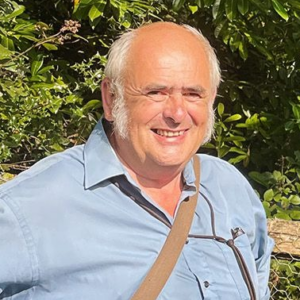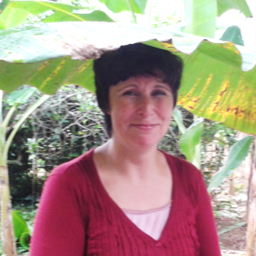

- This event has passed.
The Impact of Extreme Events
25 April 2024 @ 09:30 – 17:00
Thursday 25 April, 09:30 – 17:00 (BST)
Arts Two Lecture Theatre, Queen Mary University of London
Join our Climate Change and Medical & Veterinary Special Interest Groups as they come together to run this exciting joint hybrid conference on the impact of extreme events on insects.
The conference will cover a range of topics including historical data on climate and biodiversity, vector biology, changing spatial distributions and phenology, as well as understanding physiological responses of insects to improve predictive models. There will also be scope for talks addressing other challenges, e.g., invasive species, vector ecology, food security, conservation etc. and how research can help develop policy.
There will be a short discussion at the end of the meeting to discuss key future challenges, opportunities for collaboration and funding.
The venue, part of Queen Mary University of London, is situated right by Mile End in East London on the central line. This is a short journey from most London central stations. It is a vibrant area by the canal, with bars, restaurants and hotels. There will be an opportunity to go for informal drinks after the meeting (details tbc).

Keynote speakers
We are delighted to announce our keynote speakers:
David Renault
University of Rennes

Professor David Renault is interested in examining the sensitivity and vulnerability of insects subjected to multiple environmental variations of rapidly changing environments to make predictions of possible shifts in the geographic range of species. He focuses on invasive species, the polar regions, as well as insects of medical and veterinary importance, such as mosquitoes.
David leads several research projects, including IPEV 136 ‘Subantarctic biodiversity, effects of climate change and biological invasions on terrestrial biota’ (since 2014), ‘ASICS’ (ASsessing and mitigating the effects of climate change and biological Invasions on the spatial redistribution of biodiversity in Cold environmentS, funded by Biodiversa, call 2019-2020 ‘Biodiversity and Climate Change) all and also co-leads the national network on biological invasions (GdR CNRS, ca. 280 scientists, renewed for 2018-2022).
Sinead English
University of Bristol

Dr Sinead English is an evolutionary ecologist, and head of the Evolution and Vector Ecology Lab at the University of Bristol (evelab.org). Her research broadly aims to bring evolutionary insights into questions of public health importance, with focus on (1) the consequences of ageing in disease vectors; (2) how maternal stress influences offspring health; and (3) how climate change affects survival and reproduction of insect populations. She uses a combination of experimental and field studies on insect models (in particular, tsetse), comparative studies, and theoretical models to approach these topics. She has led major research programmes funded by the BBSRC and Royal Society, and currently holds a UKRI Future Leaders Fellowship.
Roger Morris

Roger Morris has been a Fellow of the RES since 1984. He worked in various roles for The Nature Conservancy Council & its successors before joining the Board at Harwich Haven Authority (2010-2015) and working as an independent coastal management specialist (2009-2018). He is now retired. He has been joint organiser of the British Hoverfly Recording Scheme (HRS) with Dr Stuart Ball (formerly JNCC’s Chief Analyst) since 1991 (a voluntary commitment). He and Stuart are co-authors of the best-selling Britain’s Hoverflies (Princeton University Press WILDGuides), now the ‘go-to’ guide for novices, and were instrumental in revising and updating the main British monograph British Hoverflies by Alan Stubbs & Steven Falk (2002).
Deborah Hemming
Met Office Hadley Centre & Birmingham University

Dr Deborah Hemming is the Scientific Manager of the Vegetation-Climate Interactions (VCI) team at the UK Met Office Hadley Centre. She completed a PhD in Plant Science at Cambridge University in 1998 and followed this with two post-doctoral positions at the University of Ariona, USA, and the Weizmann Institute of Science, Israel, before joining the Met Office in 2004. She has extensive research experience conducting field, laboratory, and modelling studies to understand and quantify the responses of forest ecosystems to environmental changes. Her research involves the monitoring of ecosystem changes and improvement of vegetation responses in land surface and earth system models to advance understanding of climate and environmental changes and inform climate mitigation and adaptation actions.

Programme
The full programme can now be viewed below.

Abstract submission
Abstract submission has now closed.

Registration
Registration has now closed.
In-person registration deadline: 17:00 (BST), Friday 05 April
| In-person | |
|---|---|
| RES Student Member | £20 |
| RES Member | £45 |
| Non-member | £100 |
Online registration deadline: 17:00 (BST), Friday 19 April
| Online | |
|---|---|
| RES Student Member | £10 |
| RES Member | £20 |
| Non-member | £70 |

SIG convenors
- Scott Hayward, University of Birmingham (Climate Change SIG Convener)
- Marion England, Pirbright Institute (Medical and Veterinary Entomology SIG Convener)
- Arran Folly, Animal and Plant Health Agency (Medical and Veterinary Entomology SIG deputy-Convener)

Location
Arts Two
327 Mile End Road
Bethnal Green
London
E1 4NS
